The Women’s Health Book
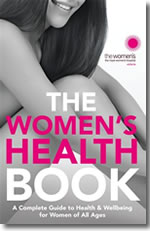 A complete guide to health and wellbeing for women of all ages.
A complete guide to health and wellbeing for women of all ages.
The Royal Women’s Hospital, Victoria
A William Heinemann book. Published by Random House, Australia 2014 800 pages.
The Royal Women’s Hospital in Melbourne is the largest health facility in Australia specializing in women’s health. The staff at “The Women’s”, many of whom have international reputations for their contribution to research and clinical practice, has put together a comprehensive volume of health advice for women. This guide is very accessible and well referenced and covers women’s health issues through all life stages. The aim of the writing group is to encourage women to share knowledge about health, educate others about important issues such as sexual violence and to advocate for gender equality in health.
The book is separated into four main areas dealing with adolescent health, young women, the midlife years and later years. There is a strong focus on healthy lifestyle and taking control of your health and, throughout the book, bullet points highlight the key issues. It discusses health screening and provides a clear table of what should be done and when. In doing so, it follows governmental screening advice and manages to steer clear of any controversy, such as that currently surrounding mammography.
A range of topical issues are discussed including body image, mental health, sexuality, contraception, pregnancy, abortion, menopause, use of complementary therapies, gynecological cancer and being a cancer carer.

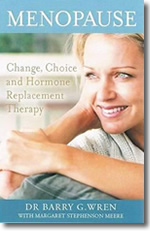 Over the last 11 years, menopause has experienced its own 'dark ages' much to the detriment of women who happened to be transitioning menopause or who were post-menopausal. Easy access to basic information about menopause and rational discussion of controversial issues were lacking. "Menopause: change, choice and HRT" has filled that void as an easy to read source of information about all aspects of menopause. It has been designed to be read in part or whole so that if the reader is seeking specific topic information, all pertinent information relating to that topic can be found in the chapter dedicated to that topic. This tended to lead to some repetition of information. However, when reading the book from cover to cover, this served to refresh the memory for readers who are less knowledgeable in this field.
Over the last 11 years, menopause has experienced its own 'dark ages' much to the detriment of women who happened to be transitioning menopause or who were post-menopausal. Easy access to basic information about menopause and rational discussion of controversial issues were lacking. "Menopause: change, choice and HRT" has filled that void as an easy to read source of information about all aspects of menopause. It has been designed to be read in part or whole so that if the reader is seeking specific topic information, all pertinent information relating to that topic can be found in the chapter dedicated to that topic. This tended to lead to some repetition of information. However, when reading the book from cover to cover, this served to refresh the memory for readers who are less knowledgeable in this field.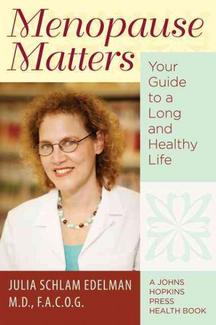
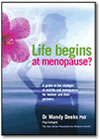 By Dr Mandy Deeks PhD Psychologist
By Dr Mandy Deeks PhD Psychologist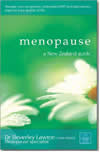 Beverley Lawton General Practitioner, researcher and a Past President of the Australasian Menopause Society is to be congratulated and thanked for her hard work and clarity in writing this concise and helpful book on menopause. Whilst its finer details are tailored specifically for New Zealanders, the topics she covers in the care of the menopausal woman have global interest, and her careful and timely summary of research data also pertain to world wide findings.
Beverley Lawton General Practitioner, researcher and a Past President of the Australasian Menopause Society is to be congratulated and thanked for her hard work and clarity in writing this concise and helpful book on menopause. Whilst its finer details are tailored specifically for New Zealanders, the topics she covers in the care of the menopausal woman have global interest, and her careful and timely summary of research data also pertain to world wide findings.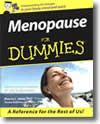 Menopause for Dummies is a very welcome addition to the stable of "For Dummies": popular books for beginners.
Menopause for Dummies is a very welcome addition to the stable of "For Dummies": popular books for beginners.